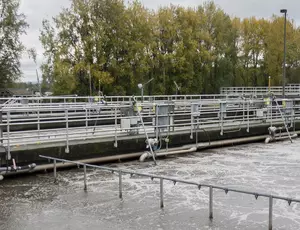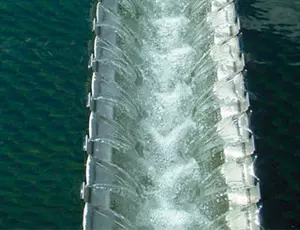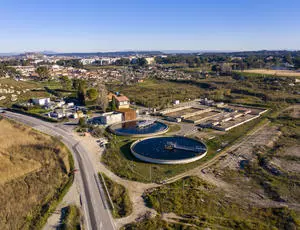Demystifying the Wastewater Treatment Process
22 December 2023
In the rapid-changing modern world that we live in today, the uncontrolled production of wastewater has become a pressing issue, posing significant challenges to our environment. At the heart of this challenge lies the need for effective wastewater management solutions, and businesses need to take on the social responsibility to drive positive change in wastewater management that goes beyond mere compliance. The first step in this journey is to understand the fundamentals of the wastewater treatment process.
Wastewater Treatment Defined
Wastewater treatment is a fascinating world in itself. It's the art of purifying and removing contaminants from wastewater to mitigate adverse environmental effects and to safeguard public health. Wastewater originates from various sources, including industrial processes, municipal wastewater, agricultural activities, and stormwater runoffs.
Why is wastewater treatment so crucial, you may ask? Besides the obvious goal of protecting public health, it is essential for reducing the risk of waterborne diseases. Untreated wastewater can wreak havoc on the environment, disrupting the delicate balance of ecosystems. Responsible wastewater treatment also promotes the sustainable use of precious water resources and ensures compliance with regulatory standards.
Experience: 30+ years of experience across the Manufacturing, Chemicals, Packaging and Food & Beverage sectors
Linkedin Profile
Inside a Wastewater Treatment Plant: What are the Processes Involved
Here, let’s take a closer look at the inner workings of a typical wastewater treatment plant.
- Primary Treatment: The initial step involves removing suspended solids from wastewater through screening. Grit substances like sand and gravel are also removed. Various processes, including flocculation, coagulation, settling, and flotation, are used to achieve the desired purification level.
- Secondary Treatment: This stage typically features biological treatment methods. Microorganisms or bacteria break down dissolved pollutants and biodegradable substances in wastewater. In cases where excess nutrients like nitrogen and phosphorus are present, additional steps are taken to prevent ecological imbalances.
- Tertiary Treatment: This stage includes filtration and disinfection. Filtration techniques like mechanical filters remove any remaining dissolved solids and fine particles. Disinfection methods, such as chlorination, UV irradiation, and ozonation, eliminate or deactivate pathogens.
- Sludge Treatment and Disposal: The pollutants generated during treatment, referred to as sludge, undergo further treatment. Sludge dewatering removes excess water, enhancing handling efficiency. Sludge digestion breaks down organic matter to produce valuable biogas, which can be used for energy generation or other purposes. Treated sludge can also be reused in agriculture.
Environmental and Economic Benefits of Wastewater Treatment
As alluded to earlier, wastewater treatment is also essential for protecting water bodies and preserving ecosystems. It allows for the recovery and reuse of valuable resources such as water, green energy, nutrients, and organic matter. These resources, in turn, can be used as an alternative energy source, as fertilisers in agriculture, or for non-potable purposes like irrigation and industrial processes. Effective wastewater treatment can also lead to cost savings by reducing freshwater intake and wastewater discharge fees.
Veolia Water Technologies is at the forefront of providing innovative wastewater treatment solutions for businesses committed to social and environmental responsibility. With a deep understanding of industry-specific challenges, the company designs and delivers wastewater treatment systems that are tailored to the clients' needs. Veolia’s goal is to help businesses achieve regulatory compliance, enhance resource efficiency, and contribute to a more sustainable future — bringing about ecological transformation.
To discover how Veolia can work with you to realise your company’s sustainable development goals through effective wastewater treatment. Together, we can make a positive impact on the environment and society, ensuring a better future for generations to come.
Discover how Veolia’s Wastewater Treatment can transform your business and meet the challenges of water scarcity today.






